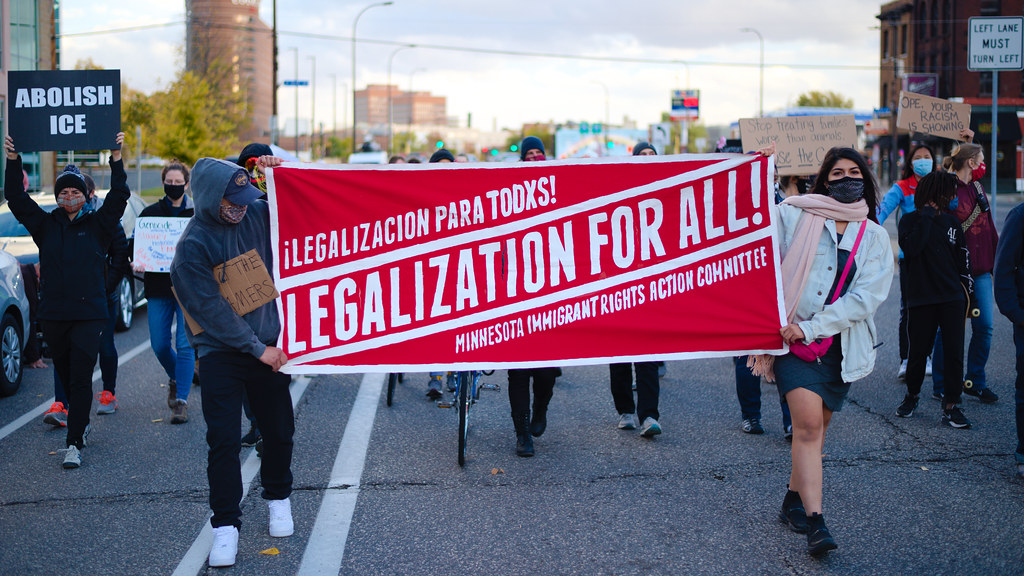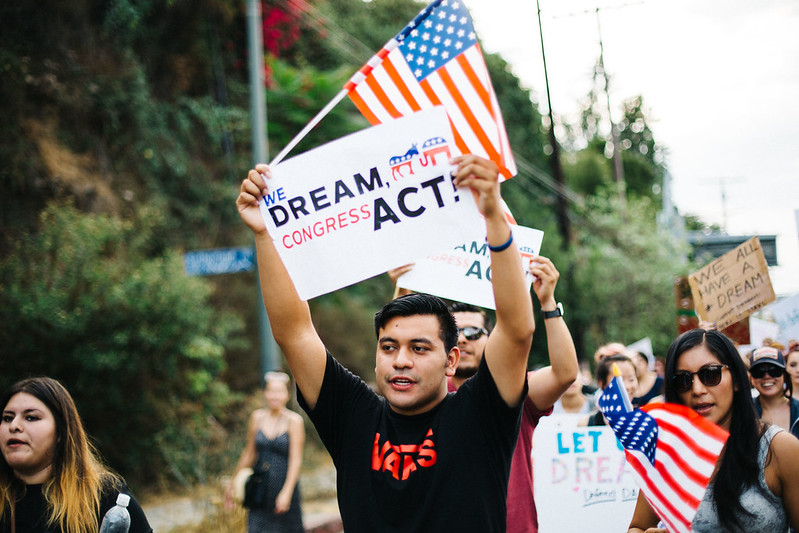 La administración Trump planea revocar la libertad condicional CHNV dejando a miles sin estatus legal
La administración Trump planea revocar la libertad condicional CHNV dejando a miles sin estatus legal
En un sorprendente giro, CBS News ha publicado nueva información sobre planes inminentes de la administración Trump para revocar el estatus legal de aquellos a quienes se les concedió un permiso de permanencia temporal en el país a base de los programas para los cubanos, haitianos, nicaragüensens, y venezolanos (conocidos como CHNV).
Se estima que más de 530,000 cubanos, haitianos, nicaragüenses y venezolanos se encuentran actualmente en los EE. UU. bajo estos programas.
¿Qué es la permanencia temporal CHNV?
El programa de permanencia temporal CHNV fue promulgado por primera vez en 2023 por la administración Biden. Al igual que el programa de permanencia temporal de “Unidos por Ucrania,” los ciudadanos de los países que calificaban (Cuba, Haití, Nicaragua y Venezuela) debían tener un patrocinador en los EE. UU., pasar verificaciónes de seguridad, y cumplir con otros criterios para obtener la admisión a los EE. UU.
A los admitidos se les concedió la entrada a los EE. UU. por un período temporal de hasta dos años, incluyendo la capacidad de solicitar autorización de empleo temporal con el Servicio de Ciudadanía e Inmigración de los EE. UU. (USCIS).
Después de la orden ejecutiva firmada por el Presidente Trump titulada “Asegurando Nuestras Fronteras,” el dia 28 de enero USCIS dejó de aceptar el Formulario I-134A, solicitud para ser patrocinador para estos programas de permanencia temporal a la espera de revisiones adicionales.
Esta fue la primera señal de problemas para el programa CHNV. También vale la pena destacar que la página web de permanencia temporal CHNV ya no está disponible en el sitio web de USCIS.
Aviso del DHS Para Revocar CHNV
Según documentos internos del gobierno revisados por CBS News, el Departamento de Seguridad Nacional pronto publicará un aviso en el Registro Federal poniendo un fin a los programas de permanencia temporal de CHNV y revocando el estado de permanencia temporal de todos a quienes se les concedió la entrada a los Estados Unidos bajo los programas de permanencia temporal de CHNV.
Estas personas serán sometidas a un proceso de deportación si no tienen ningún otro fundamento legal para permanecer en el país.
Qué significa esto:
- Aquellos cuya clasificación de permanencia temporal sea revocada y que no tengan otro estatus migratorio, serán inmediatamente inelegibles para permanecer en los Estados Unidos y ya no podrán trabajar de manera legal.
- Deportaciones aceleradas: El Departamento de Seguridad Nacional ha ampliado los procedimientos de deportación acelerada, dirigidos a personas sin estatus legal
- Vías legales alternativas: aquellos en los EE. UU. bajo permanencia temporal CHNV deben explorar vías legales alternativas para permanecer en los EE. UU. o prepararse para partir.
Continue reading
 Visa Lawyer Blog
Visa Lawyer Blog












